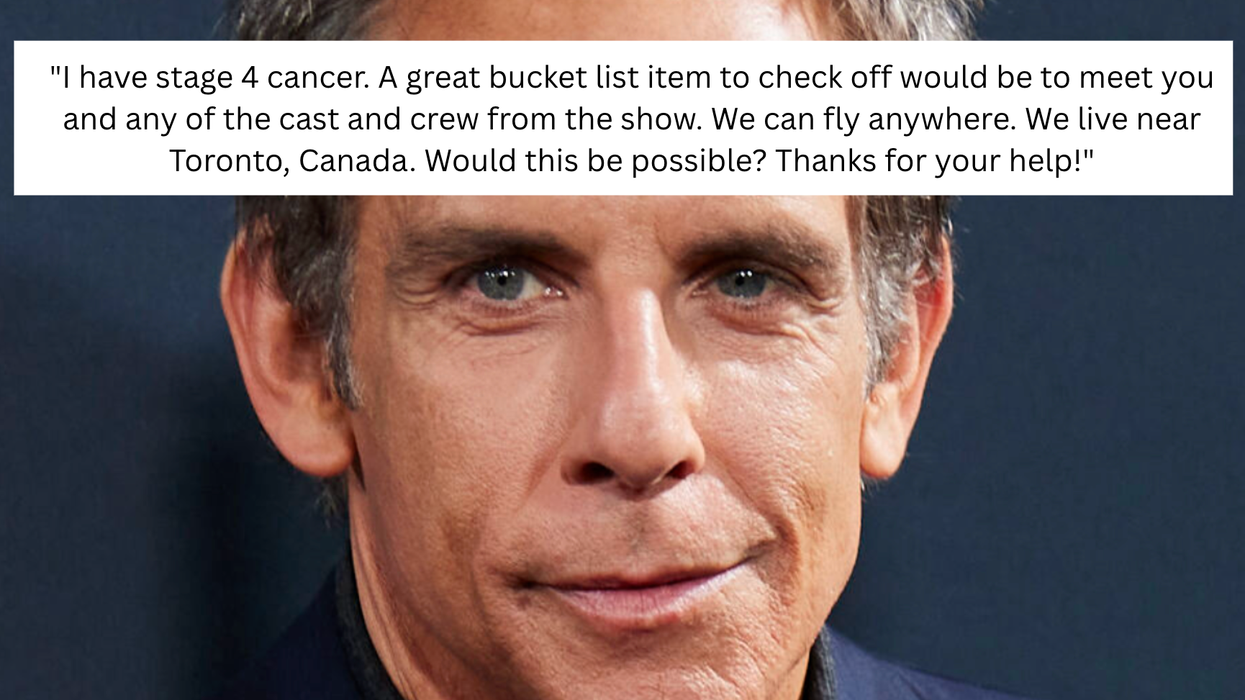How far away, really, is Timbuktu?
In the Western world, Timbuktu—a trade center founded in the fifth century in what's now the landlocked West African country of Mali—is mostly used as a shorthand for the most distant point on the map, and many scenes from director Abderrahmane Sissako's Oscar-nominated Timbuktu seem to confirm colloquial geography. The film opens on a frantic gazelle running, obviously chased, across a vast expanse of the Sahara desert, a barren landscape that might as well be the surface of another planet. The mud and wood construction of the buildings, a primary impetus for United Nations' designating the city a World Heritage site in 1988, look more like the well-preserved dwellings of an ancient civilization than a modern-day cityscape, but Timbuktu's multicultural citizens occupy them still. Even those structures may seem to provide a more familiar way of life than that lived by Timbuktu’s protagonist, cattle herder Kidane (Ibrahim Ahmed), who dwells outside the city with his small family in tents that wouldn't be out of place in Lawrence of Arabia, or The Ten Commandments. These are the historical epics cinematographer Sofian El Fani (Blue Is the Warmest Color) seems to be inspired by, even though this film's setting is significantly more recent: 2012, the year the U.N. designated Timbuktu as a World Heritage site “in danger.” (Due to ongoing conflicts in Mali, the film was actually shot in Sissako's native, neighboring Mauritania.) Still, the vivid colors and meticulously framed letterbox long-takes are perfectly appropriate here. The weapons vary somewhat in each incarnation, but the motives and even the methods of execution remain dishearteningly the same. Timbuktu's story is old as hell.
Kidane, supporting a wife and two children on a herd of about a half-dozen cattle, considers himself blessed to be living mostly outside the attention of the gun-toting militia enforcing their version of Sharia law in the city's narrow streets day and night. The law, so sayeth the men with machine guns and megaphones, requires women to cover their hair, hands, and feet and prohibits smoking and music, among other stated vices. These laws are enforced with bullets, stones, and other terrifying implements ranging from psychological tactics to execution and physical torture, but the audience, like Kidane's family, is largely spared seeing the most violent law-enforcement tactics. That poor gazelle from the film’s opening scene is indeed being hunted down by several of these enforcers in a club-cab pickup truck, who shoot at it with assault rifles. When they presumably have grown tired of the chase, they begin pointing those rifles at ancient-looking ceremonial masks and graven images, apparently condemned to defacement by firing squad. Kidane, who unlike so many of his neighbors did not flee when the militants moved in, is left to linger a little while longer in his earthly paradise, playing his own music unmolested and doting on his wife Satima (Toulou Kiki) and daughter Toya (Layla Walet Mohamed) while his adopted son Issan (Mehdi A.G. Mohamed) tends the cattle. Other than the odd clothing label (and, of course, the trucks and guns), the loving looks exchanged among Kidane's family are probably the most obviously recognizable visuals to Western viewers of Timbuktu.
On closer examination, unfortunately, the attitudes of a powerful, angry group bent on punishing or destroying anything or anyone that deviates from their extremely narrow worldview are more than a little familiar to audiences in the liberal West. After the recent shootings allegedly perpetrated in retaliation for illustrations of the Prophet Mohammed published by the Parisian satirical newspaper Charlie Hebdo, several French mosques and affiliated sites reported attacks of gunfire and explosions. Timbuktu, populated by many French-speaking characters, was scheduled to headline Belgium's Ramdam Film Festival before police evacuated the venue, reportedly in response to a “particularly high level” threat of an attack from groups unspecified. Closer to Paris, the mayor of the suburb of Villiers-sur-Marne had the film taken from theaters after calling it “an apology for terrorism” only relenting to reschedule it for a later date after countless protests that the film is actually a nuanced and artful condemnation of extremism—certainly a more carefully considered opinion than that offered by the mayor, who openly admitted to not having seen the film.
But for now, let's return to Timbuktu, the city itself (or at least its cinematic stand-in) leaving Kidane in a blissful state in the shade of his tent, strumming his guitar to soothe his wife and children. We have a feeling they won't remain undisturbed much longer. Not too far away are the assault-rifle-toting men patrolling Timbuktu, seeking out cigarette smoke, barehanded women, and by newly announced decree, soccer balls. They themselves are clearly not made of the stone in which they imagine their ever-increasing list of laws to be inscribed. They smoke, dance, and argue over the World Cup. They are humans, and we can't help but see them as such: imperfect men whose motives we are never given enough information to judge, even as we, like the local imam (Adel Mahmoud Cherif), condemn their many hateful actions. “Where's leniency, forgiveness? Where's God in all this?” the imam asks of Abdelkrim (Abel Jafri), the city's self-appointed judge, jury, and executioner in God's absence until someone of higher authority earthly or otherwise bothers to step in. There is little reason to hope Abdelkrim will really hear the question. Many would hold that the mindful holy man ignored by the man with the weapon, claiming to serve a faith he misunderstands, is indeed old as hell, dating back to the first stone cast in anger. So how far away have we ever really been from Timbuktu? On whose scale should we draw the map?
















 Otis knew before they did.
Otis knew before they did.